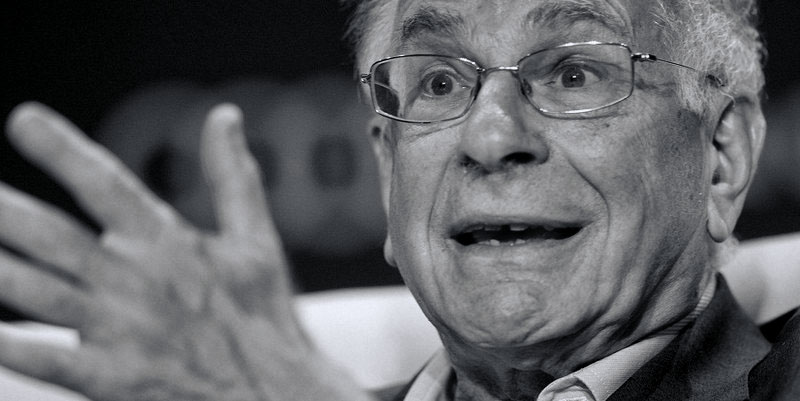by Carl Tannenbaum, Chief Economist, Northern Trust
Daniel Kahneman will be missed. But his work on behavioral economics will forever be with us.
As an undergraduate, I was taught that people behave rationally and process information well. I recall being curious about these suppositions, having witnessed plenty of less-than-intelligent behavior (some of it my own). But these assumptions were used as the basis for models of how markets work.
As the years went by, evidence of irrationality accumulated. I felt as if the economic foundations I was taught were cracking. Fortunately, a group of psychologists invited themselves into our discipline to bind up our understandings.
Among them was Daniel Kahneman, who died last week. Kahneman was a godfather of behavioral economics, which proved that people are irrational…but in very predictable ways. His life’s work earned him the 2002 Nobel Prize in Economics, the first awarded to someone who had never taken an economics class.
Through easy-to-follow experiments, Kahneman and his collaborator Amos Tversky explored the boundaries of our rationality. They identified a series of flaws, or biases, that separate human beings from classical economic ideals:
- We are overly influenced by things we have experienced recently, and prone to give more credence to news that confirms what we already think.
- We do not assess gains and losses using strict calculus. Our sense of risk is very different from mathematical probabilities.
- When confronted with a complicated problem, we try to solve it by considering a simpler problem that is similar. The mapping is often imperfect, leading to bad decisions.
A grounding in behavioral economics is essential to understanding people and markets.

These examples of our innate humanness are interesting, but usually harmless. In other situations, though, the boundaries of our rationality can be much more costly. Kahneman’s work has helped to steer people to make better decisions more often.
I encourage my colleagues to include books on behavioral economics on their reading lists. A good entry point is “The Undoing Project,” Michael Lewis’ profile of Kahneman and Tversky. “Misbehaving,” by Kahneman’s collaborator Richard Thaler, takes things to the next level. (My review of that book can be found here.) And for the harder core, Kahneman’s “Thinking Fast and Slow” goes deeper into the depths of the human mind.
Daniel Kahneman will be missed. But his ideas will forever be with us.
Copyright © Northern Trust












